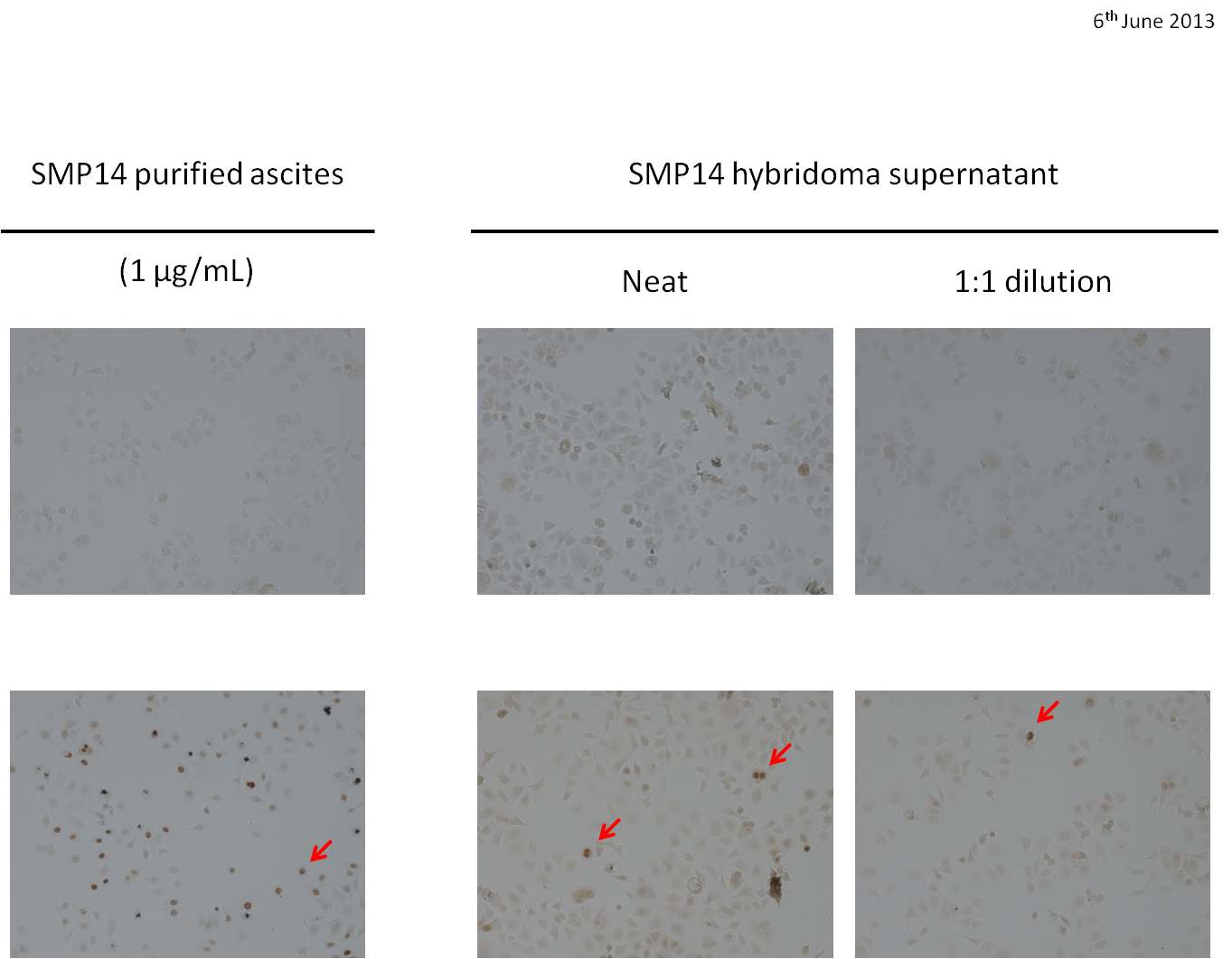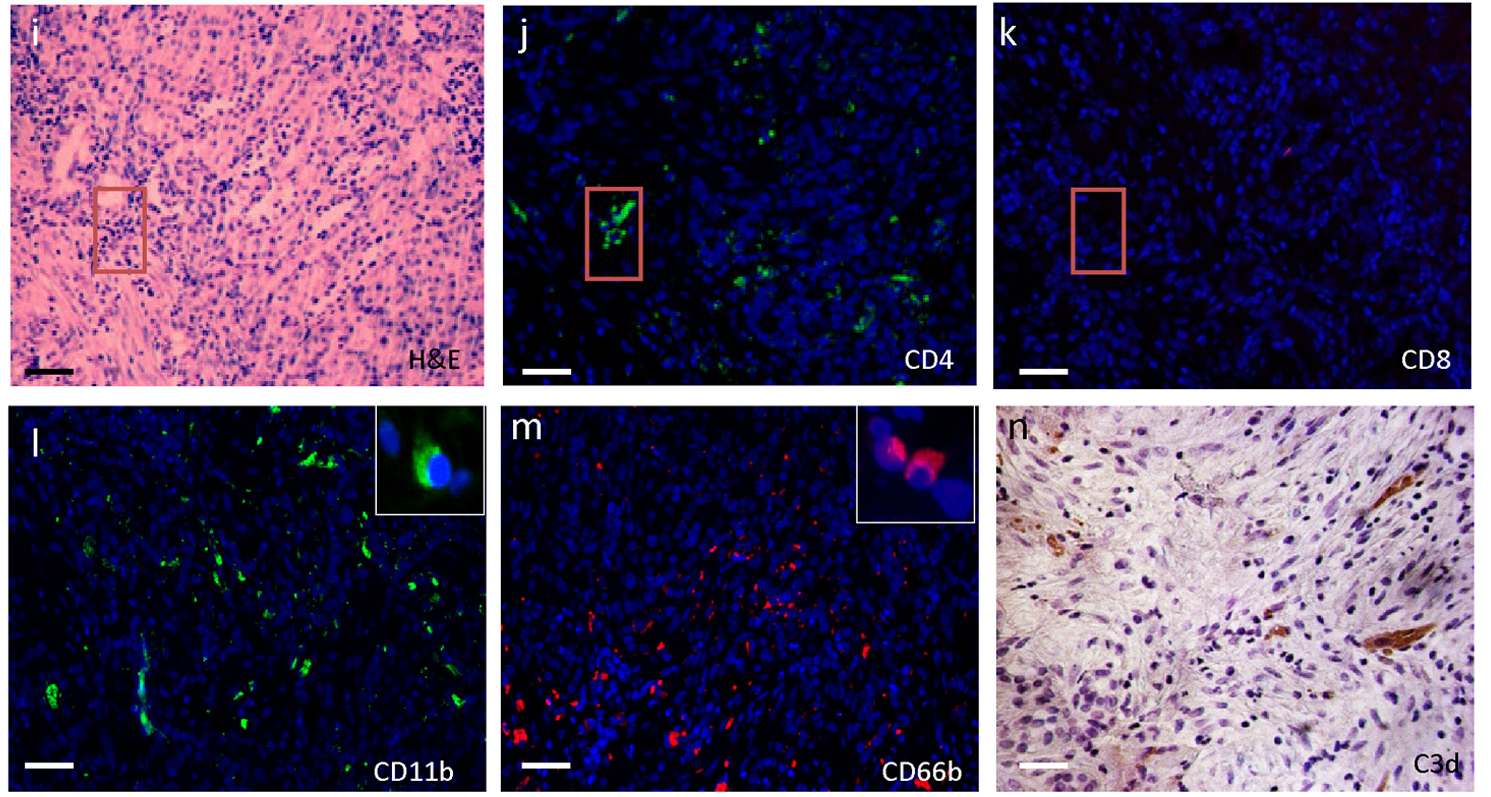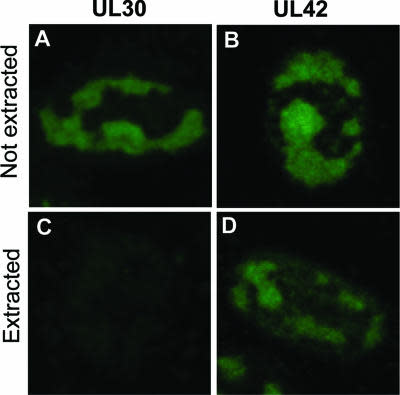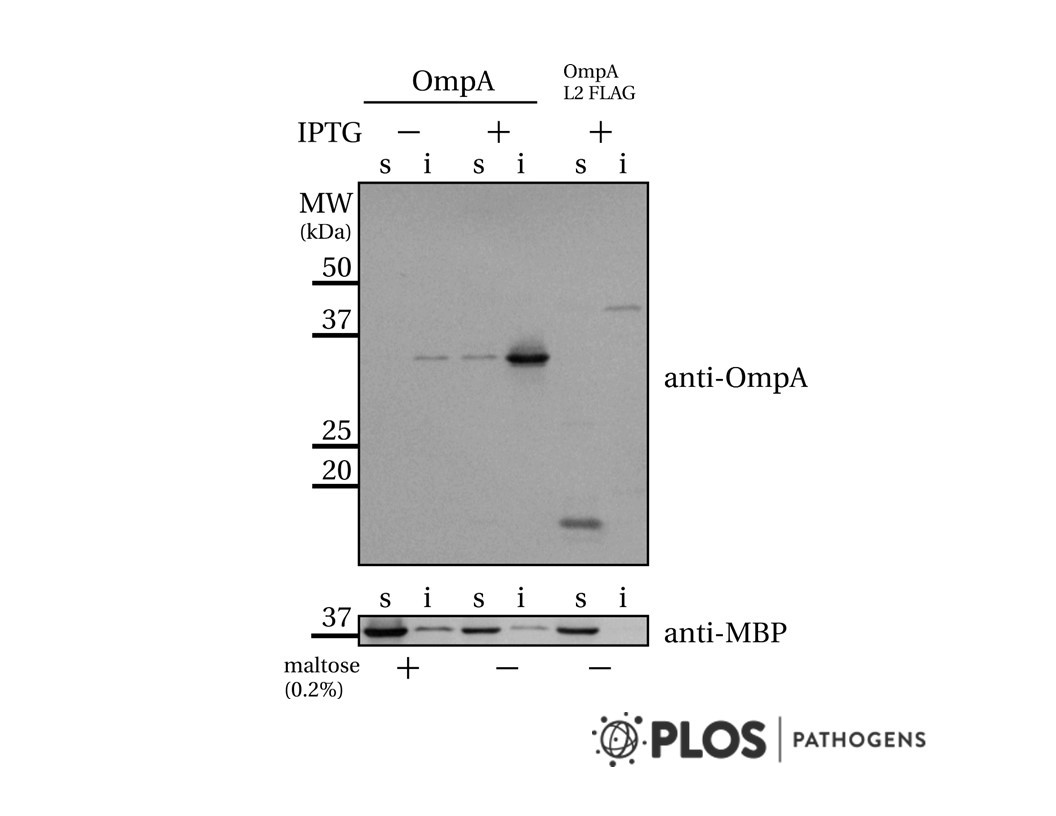Cat. #151295
Anti-MDM2 [SMP14]
Cat. #: 151295
Sub-type: Primary antibody
Unit size: 100 ug
Availability: 1-2 weeks
Target: Murine Double Minute 2 protein (MDM2)
Class: Monoclonal
Application: ELISA ; IHC ; IF ; IP ; WB
Reactivity: Human
Host: Mouse
£300.00
This fee is applicable only for non-profit organisations. If you are a for-profit organisation or a researcher working on commercially-sponsored academic research, you will need to contact our licensing team for a commercial use license.
Contributor
Inventor: David Lane
Institute: University of Dundee
Tool Details
*FOR RESEARCH USE ONLY
- Name: Anti-MDM2 [SMP14]
- Clone: SMP 14
- Tool sub type: Primary antibody
- Class: Monoclonal
- Conjugation: Unconjugated
- Strain: Balb/c
- Reactivity: Human
- Host: Mouse
- Application: ELISA ; IHC ; IF ; IP ; WB
- Description: MDM2 is over-expressed in many tumours. Its principal function is the ubiquitination and degradation of p53 tumour suppressor protein.
- Immunogen: Synthetic peptide CSRPSTSSRRRAISE (residues 154-167 in human MDM2) cross-linked to KLH using glutaldehyde.
- Isotype: Ig3 Kappa
- Myeloma used: P3X63Ag8.653
- Recommended controls: Breast carcinoma
Target Details
- Target: Murine Double Minute 2 protein (MDM2)
- Tissue cell line specificity: Breast carcinoma
- Target background: MDM2 is over-expressed in many tumours. Its principal function is the ubiquitination and degradation of p53 tumour suppressor protein.
Applications
- Application: ELISA ; IHC ; IF ; IP ; WB
Handling
- Format: Liquid
- Concentration: 1 mg/ml
- Unit size: 100 ug
- Storage buffer: PBS with 0.02% azide
- Storage conditions: -15° C to -25° C
- Shipping conditions: Shipping at 4° C
References
- Tao et al. 2013. Cell Res. 23(5):620-34. PMID: 23357851.
- Jiang et al. 2013. Nature. 493(7434):689-93. PMID: 23334421.
- Def defines a conserved nucleolar pathway that leads p53 to proteasome-independent degradation.
- Reciprocal regulation of p53 and malic enzymes modulates metabolism and senescence.
- Das et al. 2007. Int J Surg Pathol. 15(4):335-45. PMID: 17913939.
- p53 and mdm2 expression in colorectal carcinoma: a correlative analysis with clinical staging and histological parameters.
- Hashemi et al. 2002. Cancer Lett. 180(2):211-21. PMID: 12175554.
- A melanoma-predisposing germline CDKN2A mutation with Fn significance for both p16 and p14ARF.
- Zhang et al. 2001. J Biol Chem. 276(32):29702-10. PMID: 11359766.
- Cyclin a-CDK phosphorylation regulates MDM2 protein interactions.
- B
ttger et al. 1997. J Mol Biol. 269(5):744-56. PMID: 9223638. - Molecular characterization of the hdm2-p53 interaction.
- Dowell et al. 1996. Cytopathology. 7(5):340-51. PMID: 8911758.
- Expression of p21waf1/Cip1, MDM2 and p53 in vivo: analysis of cytological preparations.
- Picksley et al. 1994. Oncogene. 9(9):2523-9. PMID: 8058315.
- Immunochemical analysis of the interaction of p53 with MDM2
- --fine mapping of the MDM2 binding site on p53 using synthetic peptides.







